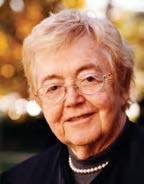Betty Binns Fletcher facts for kids
Quick facts for kids
Betty Binns Fletcher
|
|
|---|---|
 |
|
| Senior Judge of the United States Court of Appeals for the Ninth Circuit | |
| In office November 1, 1998 – October 22, 2012 |
|
| Judge of the United States Court of Appeals for the Ninth Circuit | |
| In office September 26, 1979 – November 1, 1998 |
|
| Appointed by | Jimmy Carter |
| Preceded by | Seat established by 92 Stat. 1629 |
| Succeeded by | Richard C. Tallman |
| Personal details | |
| Born |
Elizabeth Binns
March 29, 1923 Tacoma, Washington, US |
| Died | October 22, 2012 (aged 89) Seattle, Washington, US |
| Children | William A. Fletcher |
| Education | Stanford University (BA) University of Washington (LLB) |
Betty Binns Fletcher (born March 29, 1923 – died October 22, 2012) was an important American lawyer and judge. She worked as a federal judge for the United States Court of Appeals for the Ninth Circuit from 1979 to 2012. This court is located in San Francisco. Betty Fletcher was a pioneer for women in law. She was one of the first women to become a partner in a big American law firm. She was also only the second woman ever appointed to the Ninth Circuit Court of Appeals.
Contents
Becoming a Lawyer and Judge
Early Life and Schooling
Elizabeth Binns was born in Tacoma, Washington. Her father was a lawyer, and she wanted to be a lawyer from a young age too. Sometimes, her dad even let her skip school to watch him work in court. She finished high school at 16.
She then went to Stanford University and earned her first degree in 1942 when she was 19. Because many men were fighting in World War II, Betty was able to join Stanford Law School. She studied there for one year before getting married to Robert L. Fletcher.
After the war, they moved back to Washington. With help from her parents, who cared for her four young children, Betty went back to law school. She studied at the University of Washington School of Law and graduated in 1956. She was at the very top of her class!
Starting Her Law Career
Even though she was a top student, Betty Fletcher found it hard to get a job at a law firm in Seattle. Finally, a lawyer named Charles Horowitz gave her a chance at his firm, Preston Gates & Ellis. Betty worked hard and eventually became a partner there. This made her the first woman partner at any major law firm in the Pacific Northwest.
She worked in private law from 1956 to 1979. People knew her for being very practical and good at solving problems. She helped her firm grow its business in Asia. She also took over many of Charles Horowitz's clients when he became a judge in 1975. One of her clients was a former Supreme Court Justice, William O. Douglas. Betty was also the first woman to lead the King County Bar Association from 1972 to 1973.
Becoming a Federal Judge
On July 12, 1979, President Jimmy Carter chose Betty Fletcher to be a judge. She was appointed to a new position on the United States Court of Appeals for the Ninth Circuit. The United States Senate approved her appointment on September 26, 1979. She officially became a judge that same day.
Betty Fletcher became a "senior judge" on November 1, 1998. This happened after her son, William A. Fletcher, also became a judge on the Ninth Circuit. She passed away on October 22, 2012.
Many of the people who worked for Judge Fletcher later became important in government and law. For example, during the Joe Biden administration, several of her former law clerks were chosen for important jobs, including Tiffany Cartwright, Kalpana Kotagal, Alison Nathan, and Jennifer Sung.
Important Decisions as a Judge
As a judge, Betty Fletcher wrote many important legal opinions. These were decisions that helped explain the law. She worked on cases involving:
- Employment discrimination: Making sure people are treated fairly at work, no matter their background.
- Environmental law: Protecting our planet and natural resources.
- Native American civil rights: Upholding the rights of Native American tribes.
- Water rights: Deciding who has the right to use water.
- Internet issues: Cases about things like obscenity on the internet and rules for computer programs.
- LGBTQ+ rights: Fighting against unfair treatment based on sexual orientation.
 | Shirley Ann Jackson |
 | Garett Morgan |
 | J. Ernest Wilkins Jr. |
 | Elijah McCoy |

